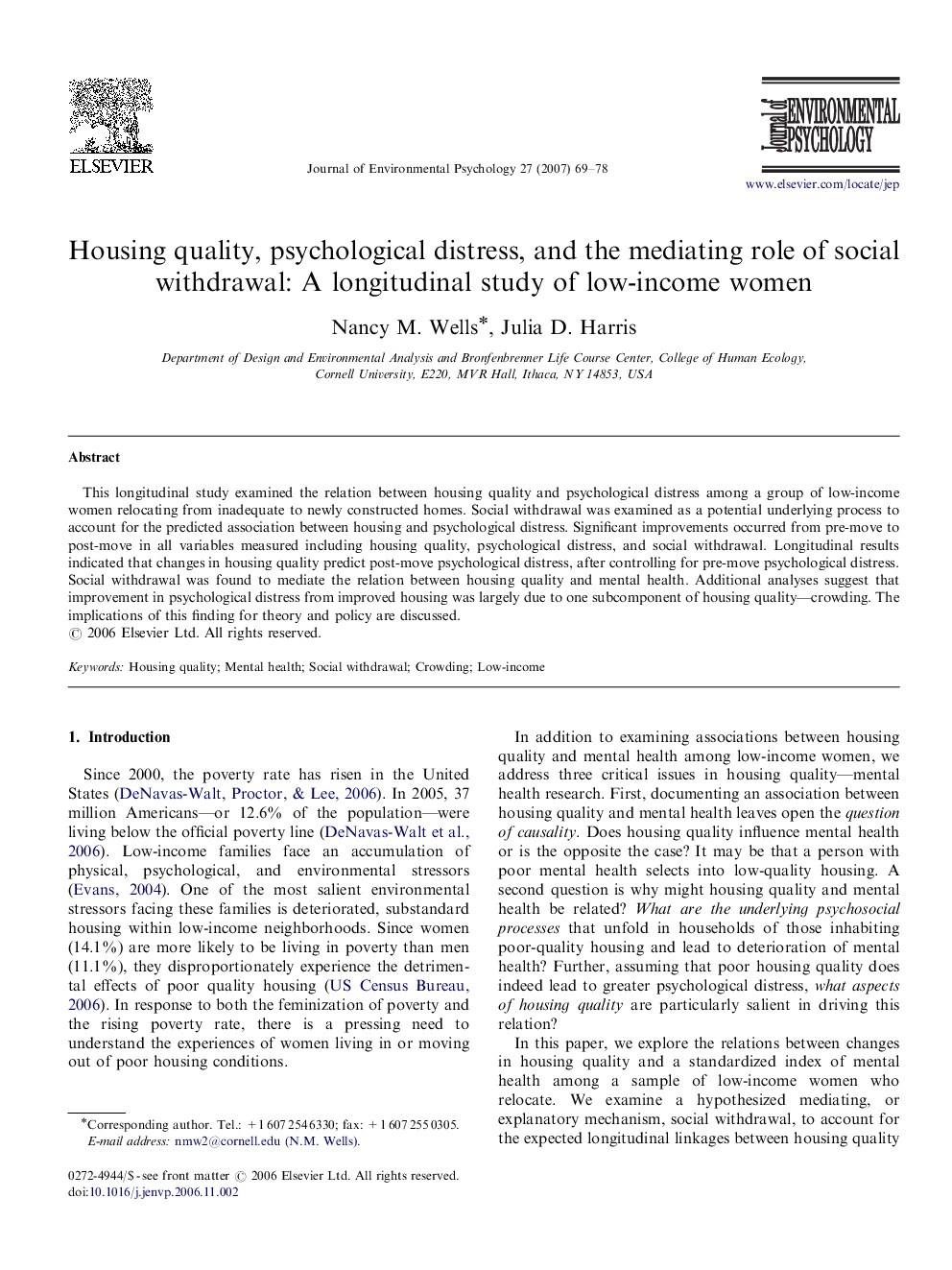| Article ID | Journal | Published Year | Pages | File Type |
|---|---|---|---|---|
| 885907 | Journal of Environmental Psychology | 2007 | 10 Pages |
This longitudinal study examined the relation between housing quality and psychological distress among a group of low-income women relocating from inadequate to newly constructed homes. Social withdrawal was examined as a potential underlying process to account for the predicted association between housing and psychological distress. Significant improvements occurred from pre-move to post-move in all variables measured including housing quality, psychological distress, and social withdrawal. Longitudinal results indicated that changes in housing quality predict post-move psychological distress, after controlling for pre-move psychological distress. Social withdrawal was found to mediate the relation between housing quality and mental health. Additional analyses suggest that improvement in psychological distress from improved housing was largely due to one subcomponent of housing quality—crowding. The implications of this finding for theory and policy are discussed.
